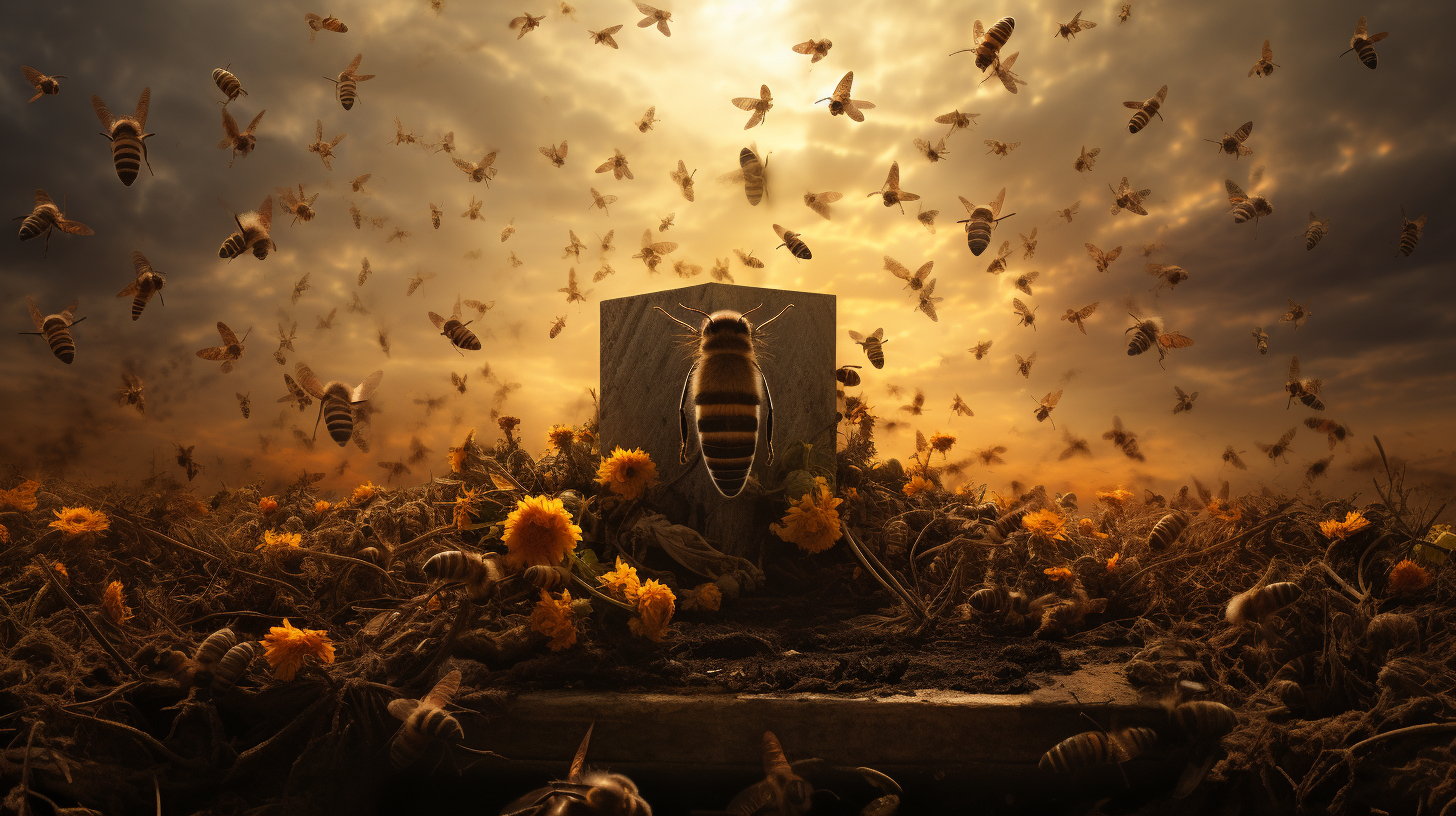In the cacophonous chamber of a world driven to the edge by environmental disaster, a haunting melody fades. It’s the final hum, the swan song of Earth’s last pollinators, the tireless workers whose silent toil once kept the symphony of life resounding through every blooming corner of our biosphere. Today, we gather to pay homage to these irreplaceable maestros, whose buzz once orchestrated the blooms of spring and the bounty of harvests.
In our collective memory, the skies were abuzz with the vibrant beat of wings – the bees, the butterflies, and countless other insects – a hypnotic rhythm, now all but silenced. The Monarchs that danced in migratory ballets, the Swallowtails that painted the air with strokes of grace, the frenetic Glasswings, invisible engines of life – all are mere whispers and echoes, quieted by the relentless march of ecological ruin.
Our chronicle of conservation efforts reads like the diary of a dystopia. Vast expanses have been transformed into sterile wastelands, with lab-based pollination projects and drone technology failing to mimic the subtle artistry of nature’s chosen. The fantastical became the fallback as mechanical drones took to the skies in a feeble attempt to replicate the irreplaceable intricacy of biotic pollination. But these mechanical mimics are to birds and bees what ventriloquist dolls are to human passion – a hollow imitation of vibrancy.
Even now, rogue conservationists persist in the face of inevitable demise. Taking a page from the advocates of artificial nocturnal choruses, these resilient souls forge ghosts in the shell of a once-flourishing ecosystem. They’ve erected shrines and sculptures, sound-installations that mimic the hum of a healthy hive, the chatter of pollinators at work. They resist silence, offering tribute to the tenacity of the natural world, now departed.
These echoes are a stark reminder of the Eden that was – a reminder that shakes us to our core. Not too long ago, the symphony of pollinators was a testament to the health and harmony of our world. Now, the dire tribute played out in the sporadic buzz from speakers hidden among the wilted flowers serves as a chilling requiem for what we have lost.
It is within this grim reflection that we find ourselves at a paradoxical juncture. The nurturing hum nurtured dreams of rejuvenation, though cold reality tells us otherwise. We revel in the homage paid, in the beauty of despair, and yet – within the stillness that follows the final hum – we are reminded that the time for intervention has long since passed.
The legacy of the pollinators, enshrined in these resolute acts, may be seen as artistic expression, a profound narrative on the fading heartbeat of the planet, a planet that mourns its lost champions in gardens of stone and metal. We commemorate not the vitality of life but the persistence of memory, in the absence of the vital force that once animated our world with color and form.
As we stand amidst the representations of this loss, it is the silence that speaks the loudest. Not even the archival soundscapes, nor the iridescent paint that seeks to resurrect the vibrancy of butterfly wings, can mask the vast emptiness left in nature’s retreat.
So we write, with a heavy heart, these words of tribute to the final hum – a eulogy to our last pollinators. Their diminutive forms may have once been overlooked, but their absence will forever alter the fabric of our world. As the hum fades into quietude, so does the future of life as we once revered it, finding serenity in the arms of an unyielding dystopia.
